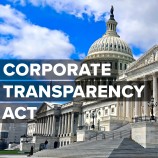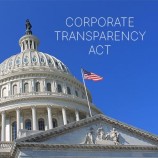Alerts & Updates
Social Security Fairness Act Provides Millions with Higher Social Security Benefits
January 13, 2025On January 5, President Biden signed the Social Security Fairness Act which repealed the Windfall Elimination Provision (WEP) and the Government Pension Offset (GPO). The repeal will ensure that approximately 2.8 million current and retired public employees who receive government pensions for their service as police officers, firefighters, teachers and in other public service jobs receive the full benefits they have earned through their contributions to the Social Security System.
Connecticut Emphasizes "Time Spent" In Determining Domicile For Estate Tax Purposes
January 9, 2025Under Connecticut law, a decedent’s estate is subject to Connecticut estate tax if the decedent was domiciled in Connecticut at the time of his or her death. “Domicile” is often defined as (i) actual residence within a particular state, combined with (ii) the intention of making that state one’s permanent home.
Enforcement of Corporate Transparency Act Suspended Again
December 30, 2024On December 26, a panel of the Fifth Circuit Court of Appeals considering the merits of the challenge to the Corporate Transparency Act (CTA) by Texas Top Cop Shop, Inc. vacated the stay of the injunction against enforcement of the CTA reporting deadlines entered by a motions panel of that Court on December 23.
Corporate Transparency Act Injunction Lifted
December 24, 2024On December 23, 2024, the Fifth Circuit Court of Appeals entered an order staying a District Court injunction that had barred the Financial Crimes Enforcement Network (FinCEN) from enforcing the reporting deadlines under the Corporate Transparency Act (CTA). Reporting entities must again comply with the reporting obligations of the CTA. Please see our prior client alerts on the CTA reporting obligations.
The IRS Announces Estate, Gift and Generation-Skipping Transfer (GST) Tax Inflation Increases for 2025
October 23, 2024On October 22, 2024, the IRS officially announced the inflation adjustments for 2025 for the gift and estate tax exemptions. The federal estate, gift and generation-skipping tax exemption will increase to $13,990,000 for 2025 from $13,610,000 in 2024.
Massachusetts Announces Tax Amnesty Program - But You Better Hurry
October 10, 2024The Massachusetts Department of Revenue (DOR) recently announced a tax amnesty program that will allow non-filers and taxpayers with outstanding Massachusetts tax liabilities to pay back taxes and avoid penalties (including interest on penalties) for all filing periods. The Massachusetts Tax Amnesty 2024 Program is open to all taxpayers who are required to file tax returns with the DOR and will run from November 1 through December 30, 2024.
2024 Private Clients Annual Update
September 26, 2024We hope that you and your family are enjoying a healthy and happy 2024. As another year passes, we once again find ourselves facing uncertainty concerning the future of the federal gift, estate and generation-skipping transfer (“GST”) tax regime resulting from both the upcoming 2024 federal elections and the scheduled sunsetting of the Tax Cuts and Jobs Act of 2017 (the “2017 Tax Act”) on December 31, 2025.
Corporate Transparency Act and the New Federal Reporting Requirements
September 20, 2024In this alert, Cummings & Lockwood discusses the Corporate Transparency Act (CTA) and the new federal reporting requirements. The CTA requires all entities to file a report with the Financial Crimes Enforcement Network (FinCEN) of the U.S. Department of the Treasury identifying certain of the entities’ beneficial owners. The alert outlines when the report is due, who is responsible for filing, who is exempt, who has to file and what are the penalties for not filing.
Taxpayer Liable for Taxes on S Corporation Income Embezzled by Other Shareholders
September 5, 2024One of the requirements to be treated as an S corporation for federal income tax purposes is that the corporation can have only one class of stock. This requirement means that all of the outstanding stock must confer identical rights with respect to distribution and liquidation proceeds.
Connecticut Modifies Retirement Income Withholding Requirements and Other Tax Law Changes
July 29, 2024Governor Ned Lamont recently signed legislation which modifies a number of important Connecticut tax provisions. Most modifications become effective for tax years beginning on or after January 1, 2025 and include:
CONNELLY v. UNITED STATES: Supreme Court Weighed In on the Valuation of Closely-Held Companies for Estate Tax Purposes
June 27, 2024Succession planning for many closely-held and family businesses will be impacted by the Supreme Court’s June 6, 2024 ruling in Connelly v. United States. In the case, the Court unanimously upheld the IRS’s position that life insurance proceeds payable to a company to fund its obligation to redeem shares from a deceased shareholder are an asset that increases the company’s fair market value.
Connecticut Passes Decanting Statute to Provide Greater Flexibility to Modify Old Trusts
June 10, 2024On June 5, 2024, Connecticut followed a number of other states by passing a “decanting” statute which specifically authorizes decanting of irrevocable trusts in Connecticut. Decanting is the act of a Trustee distributing the assets from a trust (“Old Trust”) into a new trust (“New Trust”) which has different terms that are more suited to the current circumstances.













